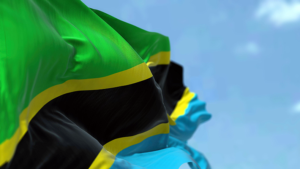The 15th Amendment, which granted African American men the right to vote, was enacted in 1870, but it was not until the Voting Rights Act of 1965 that it was properly enforced, and in 1966, the first Black senator since Reconstruction was elected. Still, in this country’s history, only 11 African Americans and 58 women have served in the U.S. Senate.
In 2013, the Supreme Court found sections of the Voting Rights Act unconstitutional, ending the required federal preclearance needed for certain geographical areas before implementing changes to voting laws. As a result of the ruling, nearly 1,000 polling sites have been closed, many of them in Southern communities primarily made up of people of color. Voter ID laws have been tightened throughout the American South, and one North Carolina law eliminated registration options and limited early voting, which affects minority populations in particular. And in January, landmark legislation that would have increased access to voting failed in the Senate. The intended outcome is clear: to repress representation of minority voters whose political beliefs are not aligned with the beliefs of people in power.
States nationwide are continuing to enact voter suppression laws, underscoring the fragile state of voting rights and the importance of voter registration and mobilization. When young people learn about the significance of voter education in a democracy and have an opportunity to become engaged in the political process, they can become leaders in this arena. To help them develop the skills they need to get there, Robert F. Kennedy Human Rights’ Speak Truth to Power Youth Advisory Board is announcing a 2022 voting rights and youth engagement program.
The program is a service-learning activity designed to teach middle, high school, and college students about the role of voting rights in a democracy and to encourage them to participate in community service activities aimed at voter education or registration. Youth Advisory Board members at colleges across the country plan to lead much of the programming, and educators will offer resources and support. This spring and summer, the program will include a webinar workshop teaching participants how to hold voter registration drives and participate in community outreach activities educating voters about their rights, as well as regular check-ins with educators and student debriefing sessions to discuss what they have learned.
Kevin Khadavi, a Youth Advisory Board member and senior at Great Neck North High School in Great Neck, N.Y., says young people have “a particular responsibility to our forebears to continue this most sacred struggle for representation.” For young leaders, that means teaching students how to register voters in their area and elect representatives who will respond to the values and beliefs of all their constituents.
“Essentially, we are inspired and driven by the collective actions of those who gave up their well-being and ultimately their lives to achieve a more just society,” Khadavi says. “Now, continuing the work of those legendary activists, we are taking steps to bring our country closer to its founding promise—that all are created equal.”
For more information about the Youth Advisory Board’s program, contact Karen Robinson, robinson@rfkhumanrights.org.



